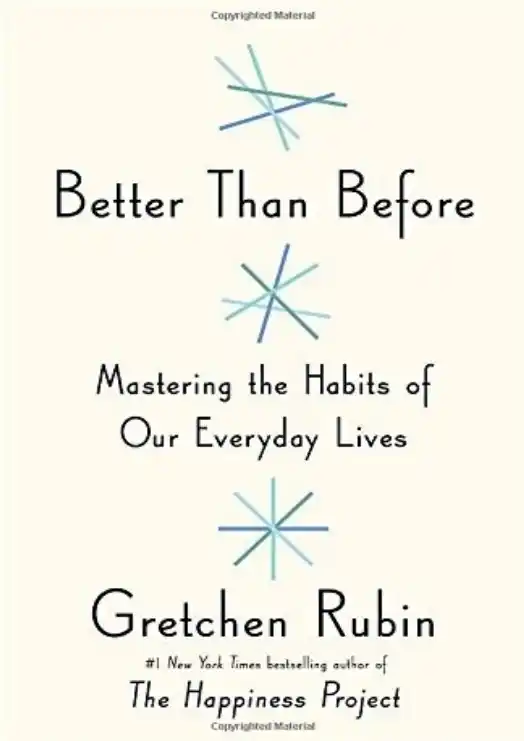
Habits are the invisible architecture of daily life. We repeat about 40 percent of our behavior almost daily, so our habits shape our existence and our future. If we change our habits, we change our lives. But that observation just raises the question: How do we change our habits? That’s what this book seeks to answer. The secret to changing habits? First, we must know ourselves. Different strategies work for different people—in fact, what works for one person might directly conflict with what works for another.
“Better Than Before: Mastering the Habits of Our Everyday Lives” by Gretchen Rubin explores the intricate nature of habit formation and provides practical strategies for creating and maintaining habits that align with our individual personalities. Unlike one-size-fits-all approaches, Rubin emphasizes that understanding your unique tendency is essential for habit success.
The book introduces Rubin’s Four Tendencies framework which categorizes people based on how they respond to expectations: Upholders readily meet both outer and inner expectations, Questioners meet inner expectations but resist outer ones unless they make sense, Obligers meet outer expectations but struggle with inner ones, and Rebels resist both types of expectations. This framework serves as the foundation for tailoring habit strategies to individual personalities.
Rubin identifies twenty-one strategies for habit formation, organized into several pillars. The first pillar focuses on self-knowledge – recognizing not just what habits you want to form but understanding your specific nature and preferences. She emphasizes that we manage what we monitor, highlighting how tracking and awareness are crucial to habit change.
The book explores various “distinctions” that influence how we approach habits. Some people are “abstainers” who do better quitting something completely, while “moderators” thrive with occasional indulgences. Some are “morning people” versus “night people,” “marathoners” versus “sprinters,” or “overbuyers” versus “underbuyers.” Recognizing these tendencies helps customize habit strategies.
Rubin introduces the concept of the Four Pillars of Habits: Monitoring, Foundation, Scheduling, and Accountability. She discusses how habits are easier to maintain when they are scheduled rather than left to when we “feel like it,” and how external accountability is crucial for many people, especially Obligers.
The book delves into powerful strategies like “pairing” (linking a desired habit with an established one), “convenience” (making good habits easier and bad habits harder), and the “strategy of loophole spotting” (identifying the justifications we use to break habits). Rubin also explores the importance of “safeguards” – planning for inevitable habit disruptions.
A significant insight is the concept of “foundation habits” – sleep, movement, eating and drinking right, and decluttering – which support all other habits. She also introduces the idea of “lightning bolt moments” – dramatic experiences that can instantly change habits, in contrast to the gradual process most habit change requires.
Rubin challenges conventional wisdom about habits, arguing that what works for one person might not work for another. For instance, treating yourself to rewards might work for some but backfire for others. Similarly, while many habit experts advocate small steps, some people do better with ambitious goals.
Throughout the book, Rubin weaves personal anecdotes and observations from her “happiness project” study groups to illustrate how these principles work in real life. She acknowledges the complexity of habits, noting that even “good” habits can have downsides and habits that work in one season of life might need adjustment in another.
The core message of “Better Than Before” is that by understanding ourselves better – our values, our tendencies, our distinctions – we can design habit strategies that truly work for us, creating lives where we can be “better than before.”